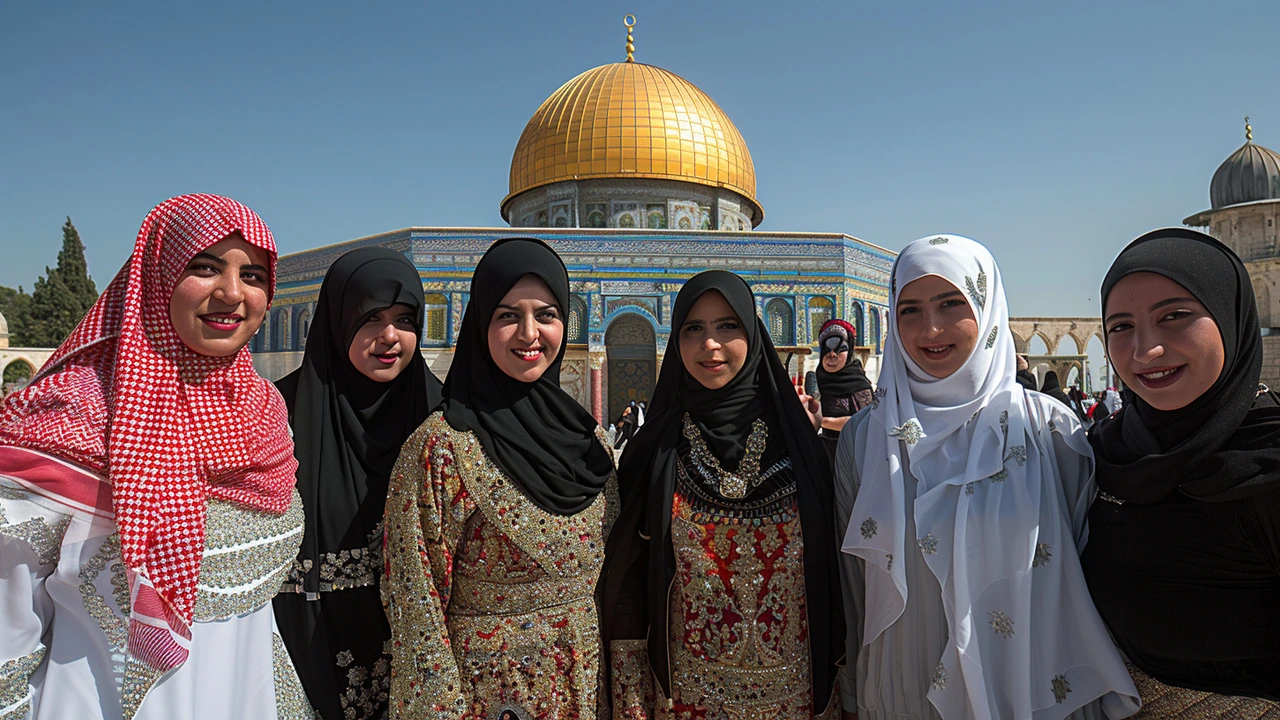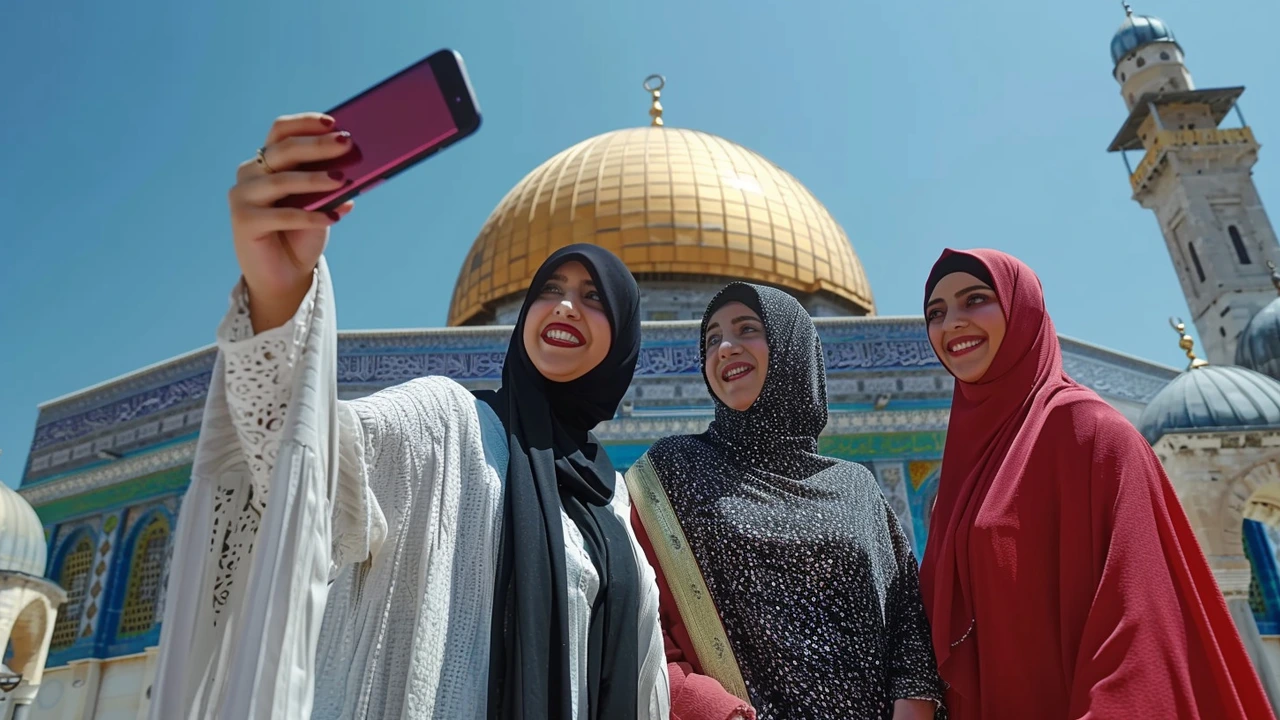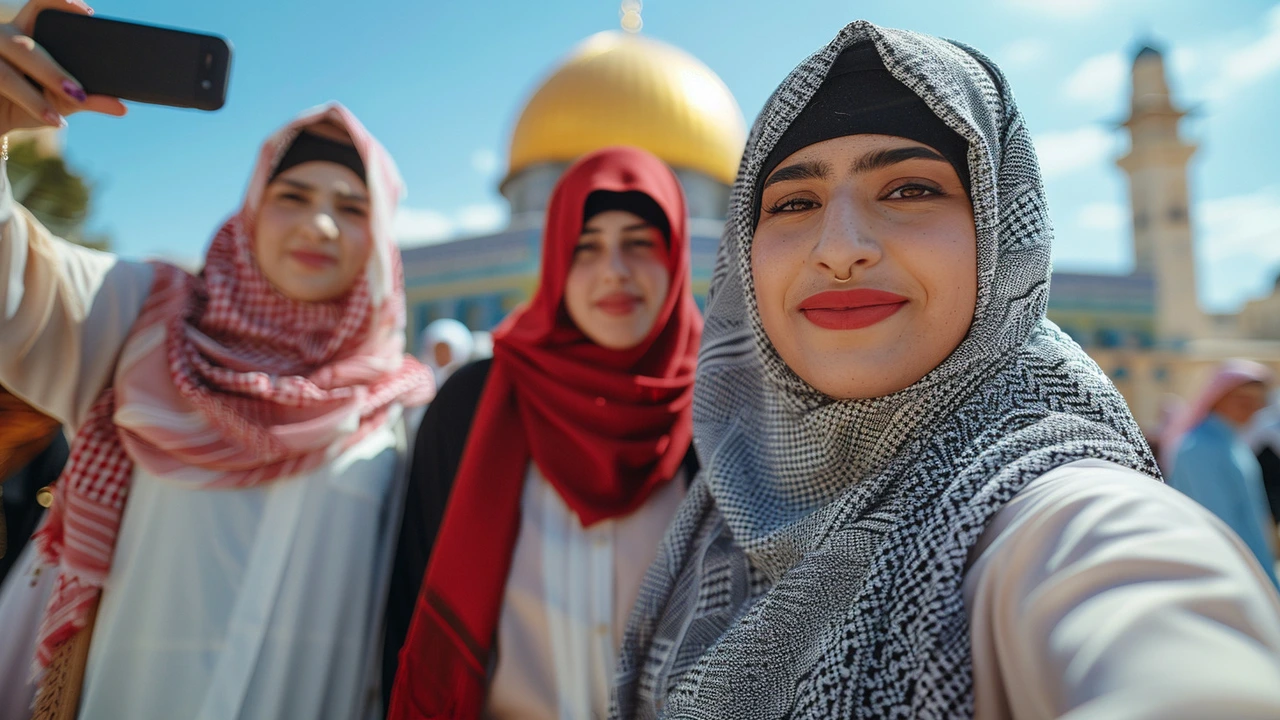The Profound Significance of Eid ul-Adha
Eid ul-Adha, also known as the Feast of Sacrifice or Bakrid, is one of the most significant festivals in the Islamic calendar. Celebrated with great joy and devotion across the globe, it marks the end of the Hajj pilgrimage, one of the Five Pillars of Islam. The festival centers around the story of Prophet Ibrahim’s unwavering faith and obedience to God. According to Islamic tradition, Ibrahim received a divine command to sacrifice his beloved son, Isma’il, to demonstrate his faith. Just as he was about to fulfill this heart-wrenching command, God intervened and provided a ram to be sacrificed instead. This act of substitution is commemorated during Eid ul-Adha, highlighting the themes of devotion, faith, and obedience to God's will.
The Historical Roots of Eid ul-Adha
The origins of Eid ul-Adha are deeply rooted in the Quranic narrative of Ibrahim and Isma'il. Ibrahim's readiness to sacrifice his son at God's command is seen as the ultimate act of submission. The intervention of God, who provided a ram in place of Isma'il, is a significant aspect of the story. This pivotal event underscores the importance of faith and obedience in Islam. The festival’s name, Eid ul-Adha, literally translates to the 'Festival of Sacrifice'. It serves as a reminder of Ibrahim’s unwavering faith and his complete surrender to God's will.
Significance of the Hajj Pilgrimage
Eid ul-Adha coincides with the culmination of Hajj, a pilgrimage to Mecca that every Muslim is obliged to undertake at least once in their lifetime, provided they are financially and physically able. Hajj is one of the Five Pillars of Islam and represents one of the largest annual gatherings of people in the world. During this period, millions of Muslims gather in Mecca to perform a series of rituals, including the Tawaf, which involves circling the Kaaba, and the Sa’i, which involves walking between the hills of Safa and Marwah. The significance of Hajj lies in its ability to foster a sense of unity and equality among Muslims from different backgrounds, reinforcing the global Islamic community's solidarity. Eid ul-Adha and Hajj together emphasize the universal scope of Islam and its teachings of faith, sacrifice, and community.
Celebratory Practices During Eid ul-Adha
Eid ul-Adha is celebrated with various rituals and customs that vary slightly depending on cultural contexts, but the core elements remain consistent. The day begins with special prayers known as Salat al-Eid, held in large congregations at mosques or open grounds. These prayers are a way for Muslims to express their gratitude and devotion to God. Following the prayers, a key ritual is the Qurbani, or the animal sacrifice. Muslims traditionally sacrifice a goat, sheep, cow, or camel in remembrance of Ibrahim’s willingness to sacrifice his son. This act is deeply symbolic, representing the concepts of generosity, compassion, and sharing within the community.
Generosity and Community Spirit
The meat from the sacrificed animal is divided into three parts. One part is retained for the family, another is given to relatives and friends, and the third is distributed to the needy and less fortunate. This practice emphasizes the importance of altruism and caring for the community, ensuring that everyone, regardless of their socio-economic status, can partake in the festivities. The sharing of meat also reflects the themes of brotherhood and unity within the Muslim community.
Reflecting on Values and Social Harmony
Eid ul-Adha is not just about rituals and celebrations; it is a time for Muslims to reflect on the values of sacrifice, obedience, and humility. It encourages followers of Islam to consider their own faith and how they can better serve their communities and families. The festival fosters a sense of social harmony, as Muslims come together to celebrate and reaffirm their faith. It serves as a reminder of the blessings bestowed upon them and the importance of practicing gratitude and compassion.

Global Celebrations and Cultural Diversity
Although the essence of Eid ul-Adha remains the same, the way it is celebrated can vary widely across different cultures and regions. In many parts of the world, particularly in countries where Islam is the dominant religion, Eid ul-Adha is a public holiday. Celebrations often include community feasts, family gatherings, and the exchange of gifts. In some places, vibrant processions and parades are held, showcasing the rich cultural heritage and traditions associated with the festival. Despite these regional differences, the underlying themes of the festival—faith, sacrifice, and community—remain a unifying force for Muslims worldwide.

The Importance of Eid ul-Adha in Contemporary Times
In today's world, the values emphasized during Eid ul-Adha are more relevant than ever. The festival serves as a reminder of the importance of compassion, generosity, and unity at a time when these values are often challenged. As Muslims around the world come together to celebrate, they reinforce the importance of family, community, and solidarity. Eid ul-Adha not only commemorates a significant event in Islamic tradition but also encourages Muslims to continue the practice of altruism and social responsibility in their daily lives.
Closing Thoughts
Eid ul-Adha is a multifaceted festival that is rich in history, cultural significance, and religious importance. It serves as a testament to the enduring legacy of Prophet Ibrahim’s faith and obedience to God. The festival's emphasis on sacrifice, community, and generosity encapsulates the core values of Islam and offers a profound lesson in faith and devotion. As Muslims around the world prepare to celebrate Eid ul-Adha in 2024, it is a time to reflect not only on their religious obligations but also on their role within their communities and the broader society. By embracing the spirit of this festival, Muslims reaffirm their commitment to the principles of compassion, humility, and unity, ensuring that the legacy of Eid ul-Adha continues to inspire future generations.


Aileen Amor
June 17, 2024 AT 15:33Okay, BUT-have you ever seen a goat get dragged across a parking lot by a guy yelling Allahu Akbar while his kids are laughing and chasing pigeons? That’s Eid ul-Adha in my neighborhood. It’s chaos. It’s beautiful. It’s the only time my neighbors actually share food with me-and I’m not even Muslim. I got lamb kebabs last year. I cried. Don’t overthink it. Just show up. And bring napkins.
Letetia Mullenix
June 18, 2024 AT 09:58i always think about how hard it mustve been for ibrahim… like, imagine being told to kill your kid… and then god just… swaps it for a ram? no warning? no therapy afterward? i dont know. i just feel like this story is so heavy and yet we turn it into a BBQ day. i dont mean to be dark. just… thinking.
Morgan Skinner
June 18, 2024 AT 21:23Let’s be real: Eid ul-Adha isn’t just a religious ritual-it’s a global act of resistance against individualism. In a world where ‘me time’ is king and ‘my rights’ are sacred, Muslims sacrifice their most valuable asset-meat, yes, but also ego-to feed strangers. The Hajj? Millions of people, from every race, class, and language, wearing the same white cloth. No flags. No titles. Just humanity. That’s not just faith. That’s revolution. And it’s happening right now, in Mecca, as we scroll through TikTok. Don’t just celebrate it. Learn it.
Rachel Marr
June 19, 2024 AT 08:49It’s so beautiful how this day turns generosity into a habit. Not just giving once a year, but building a rhythm of sharing. I’ve seen families in Detroit split a cow with three different neighborhoods. One part to the shelter, one to the elderly mosque members, one to the new refugee family who didn’t know what Eid was until they got a box of meat and a handwritten note in Arabic. That’s the real miracle. Not the ram. The kindness.
Kasey Lexenstar
June 19, 2024 AT 20:59Wow. So we’re supposed to be impressed that a guy almost murdered his son because he heard a voice? And now we celebrate it with meat distribution? Classic religious gaslighting. If your god demands child sacrifice, maybe don’t follow him. But hey, if you wanna eat lamb and call it spiritual, go ahead. Just don’t pretend it’s not just ancient trauma dressed up in tradition.
Trevor Mahoney
June 20, 2024 AT 12:20Have you ever stopped to think that the entire Eid ul-Adha narrative is a controlled distraction? The ram? That wasn’t divine intervention-that was a cover-up. The real story? Ibrahim was part of a secret priestly caste that used animal sacrifice to control population growth and maintain power structures. The ‘voice’? A hallucination induced by desert fasting and hallucinogenic herbs in the water. The global meat distribution? A front for black-market livestock trafficking networks that still operate under the guise of ‘Qurbani.’ The UN has reports. The media won’t touch it. But you know why? Because if people realized the ‘sacrifice’ was never about faith-it was about control-they’d stop buying the whole thing. And then where would the institutions be? Exactly. So keep celebrating. Keep sharing. Keep blind.